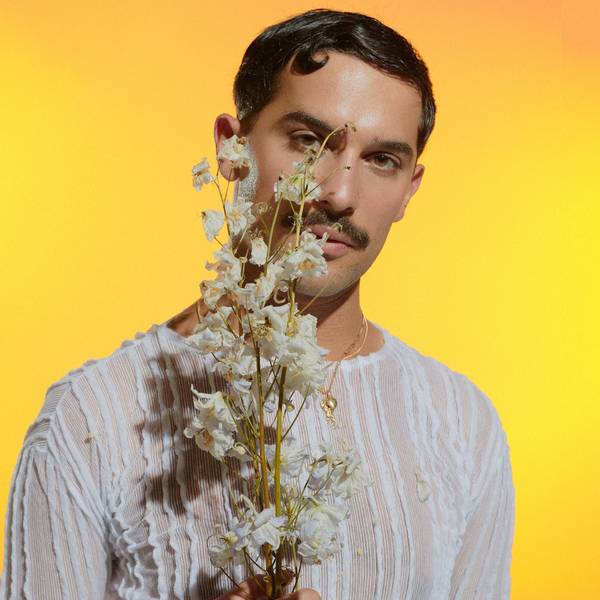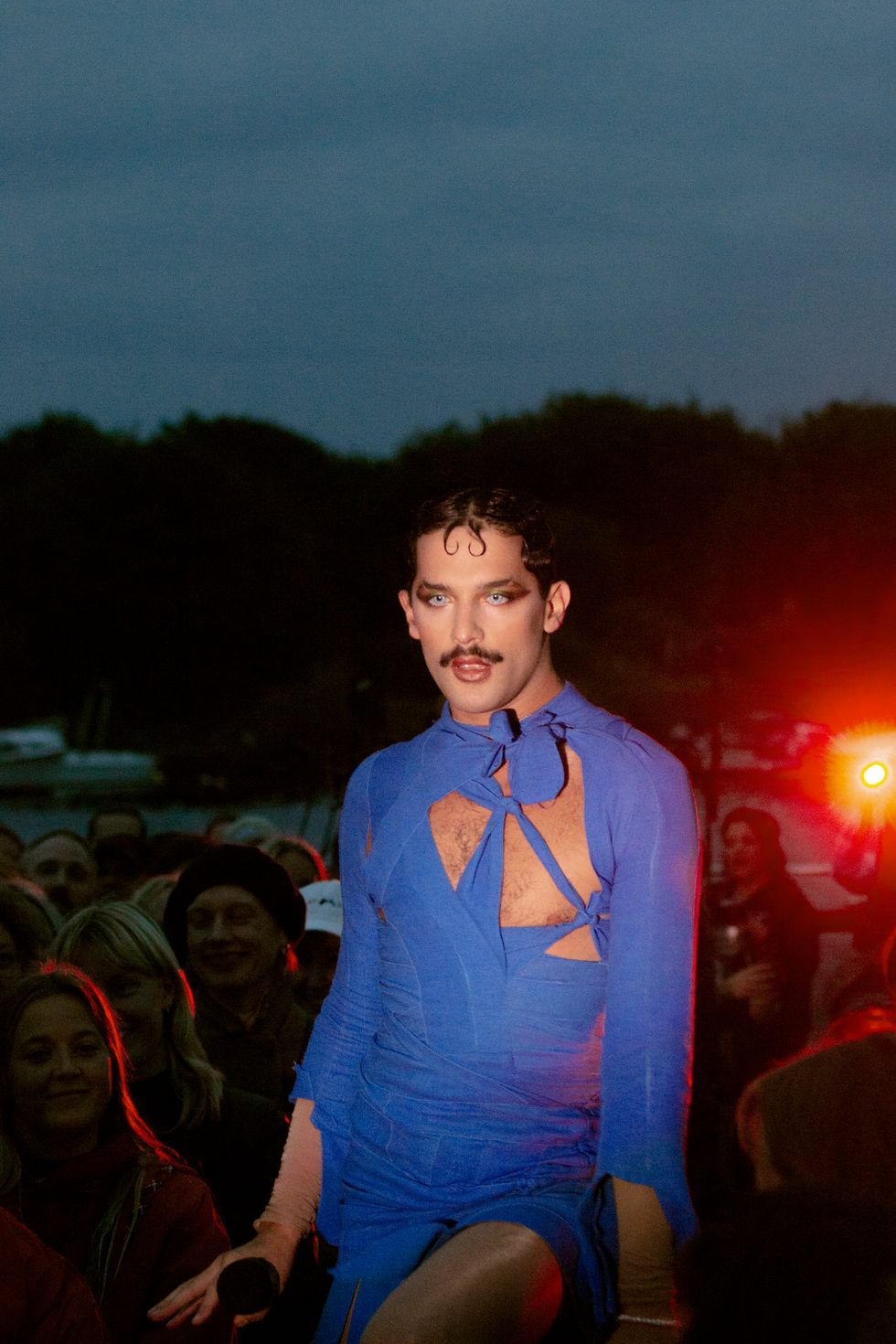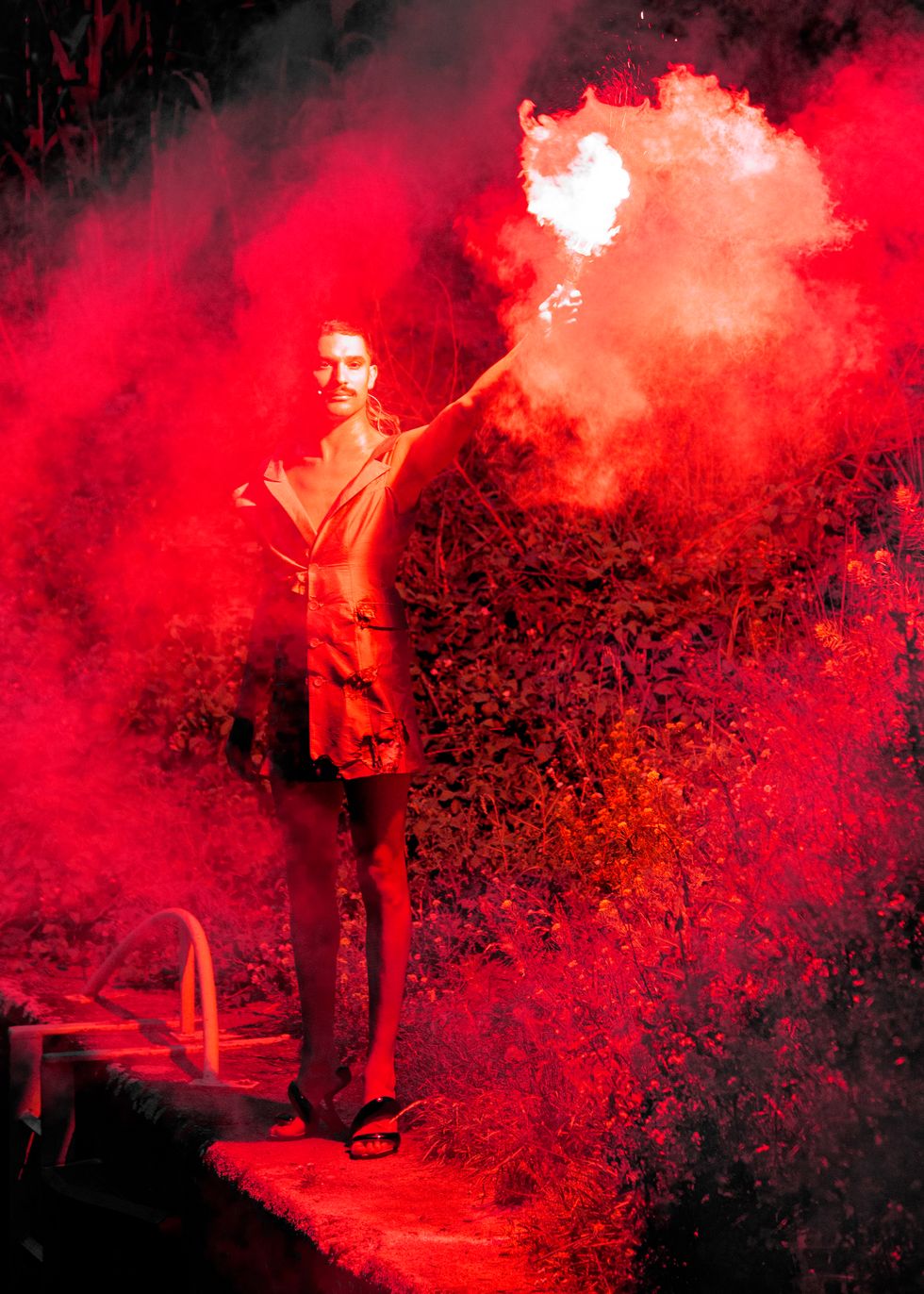
Astrit Ismaili and Mykki Blanco Take On Oppression Through Pop
Jan 11, 2024
Performance artist Astrit Ismaili won’t let oppression get them down or stop them from dancing. In 2019, their performance project “MISS” explored historical and fictional figures that took on their tumultuous environments, overcoming biological, geopolitical and social limitations by transforming themselves. Now, the Balkan artist is revisiting the performance piece via “MISS KOSOVO,” a vivacious dance track featuring rapper, performer and activist Mykki Blanco as they link up to underscore the challenges of oppressed peoples. The track is one of the first works of music by Ismaili, using experimental pop music as a medium to “transform the potential of space and bodies” and “resist and oppose different systems of oppression.
"I think Astrit is a very dynamic artist with a story to tell that is now often looked over in a queer historical context," Blanco tells PAPER of their collaboration. "It's important as a community to always resurface narratives from all over the world that create and tell the multifaceted history of what is to be queer in many different contexts, not just from a Western perspective. From Klaus Nomi and Fischerspooner to Lady Gaga I think pop as a medium of performance and play from artists who create in gallery context will always be interesting that melding of worlds."
The single reflects Ismaili’s lived experience and belief that harsh environments can still nurture growth, pushing people forward and forcing them to bloom until their voices are clear and vibrant, much like a blossoming flower unable to be ignored. Their debut album, The First Flower, is set for release on February 23 and is written from the perspective of the first-ever green plant on Earth, one that’s going through a “physical and spiritual transition to enhance its chances of success while pioneering in extremely fluid sexual interactions.” For Ismaili, the decision to transmute their performance art into an album was a chance to “reach out to more people.”
“In my performance practice, composing music and the exploration of the voice have been the main mediums,” Ismaili tells PAPER. “That is because I believe that the singing voice produced from within is transcendental and it can penetrate and touch the other so deeply, surpassing the meaning of words. Music speaks the universal language of emotions and I believe it is a beautiful way to preserve energy or a message in a song.”
Below, Ismaili talks to PAPER about creating art in harsh environments, collaborating with Blanco and inspiring listeners to "claim their space unapologetically and fabulously."
What was the initial inspiration behind “MISS KOSOVO” and how did you bring it to life in the song?
“MISS KOSOVO” is a song that was written for a performance project I created titled "Miss" that explores three historical and fictional figures that, by being creative, transform themselves and their environment, overcoming biological, social and geopolitical limitations. One of them is "Miss Kosovo," who is also my alter ego. "Miss Kosovo" is a fashion-forward powerhouse figure who uses her queerness and femininity as superpowers to claim her space into the world with sharp political statements and fabulous looks. She is a fighter and a transformer turning war battlefields and relevant socio-political questions into a runaway show with the fictional, the personal and the historical shuffling with one another.
The lyrics of the song are inspired by the recent right-wing political shifts in Europe and beyond. Through this song I felt the urgency to reflect on what happened in the '90s in Europe. The fall of the Berlin Wall, Yugoslavian wars, and the Independence of Kosovo are chains of events that I believe are relevant references to the current political situation. Through "Miss Kosovo" I want to address two layers of identity still fighting for their right to exist on a social and institutional level and the recognition of the Independence of Kosovo and the political existence of queer people in local and international context.

I read that you wanted "MISS KOSOVO" to represent how “the oppressed often share common struggles that extend beyond wartime.” What are some of those common struggles you wanted to represent in the song?
I believe that limitations, restrictions, and constraints are struggles that we are all familiar with and confronted with on a daily basis. At times, these limitations are designed to control specific communities, often the marginalized. These forms of oppression are often met with resistance and historically there has been progress which proves that change is possible. The song represents the power of transformation and is inspired by that moment of having full clarity, standing for what you believe in, voicing it and fighting with pride and grace.
You’ve also talked about how “harsh environments” can transform and nurture you. How does this track embody that belief?
I grew up in Pristina [the capital and largest city of Kosovo] in a post-war environment where basically there was not much infrastructure for me to be what I wanted to be and to do what I wanted to do. Very soon, I realized that the only way to operate in such environments is to create my own infrastructure, models and worlds and that is how my interest in art and performance started. On one hand, there is a sense of freedom in creating your own path which can result in coming up with unexpected, special or new ideas.
Even the process of making this track was not how music is classically made in the studio. Since my relation to making music comes from my performance practice, the song is quite performative and visual which one can imagine and feel while listening to the song.

Why did you want to collaborate together on this single?
I don’t know if Mykki knows about this but the first time I saw Mykki live was in 2011 or 2012 while I was living in NYC and I was amazed by the energy, stage presence and artistic integrity. Ever since I have always wanted to collaborate together so having Mykki Blanco featured is a dream come true. Mykki’s contribution to the song is very generous, well articulated and energizing, making this project and ‘Miss Kosovo’ a universal figure that a lot of people can relate to.
What do you hope people walk away with once they listen?
First of all I want people to move to the beat, get empowered by the content and the energy of the track and inspire them to claim their space unapologetically and fabulously.
What are you most excited to share next?
I am so excited to announce that my first album titled The First Flower executive produced by The Performance Agency is coming out in February of this year. I am very excited to soon share the cover of the album and the sonic universe of the album. All I can say right now is that there is nothing like it out there!
Photography: Julian Lee-Harather, Melanie Gluck, Iraki Gabelaia
From Your Site Articles
Related Articles Around the Web
MORE ON PAPER
Entertainment
Dove Cameron and Avan Jogia Broke Their Molds
Photography by Gustavo Chams / Story by Joan Summers
Photography by Gustavo Chams / Story by Joan Summers
18 February
ATF Story
Madison Beer, Her Way
Photography by Davis Bates / Story by Alaska Riley
Photography by Davis Bates / Story by Alaska Riley
16 January
Entertainment
Cynthia Erivo in Full Bloom
Photography by David LaChapelle / Story by Joan Summers / Styling by Jason Bolden / Makeup by Joanna Simkim / Nails by Shea Osei
Photography by David LaChapelle / Story by Joan Summers / Styling by Jason Bolden / Makeup by Joanna Simkim / Nails by Shea Osei
01 December
Entertainment
Rami Malek Is Certifiably Unserious
Story by Joan Summers / Photography by Adam Powell
Story by Joan Summers / Photography by Adam Powell
14 November
Music
Janelle Monáe, HalloQueen
Story by Ivan Guzman / Photography by Pol Kurucz/ Styling by Alexandra Mandelkorn/ Hair by Nikki Nelms/ Makeup by Sasha Glasser/ Nails by Juan Alvear/ Set design by Krystall Schott
Story by Ivan Guzman / Photography by Pol Kurucz/ Styling by Alexandra Mandelkorn/ Hair by Nikki Nelms/ Makeup by Sasha Glasser/ Nails by Juan Alvear/ Set design by Krystall Schott
27 October




